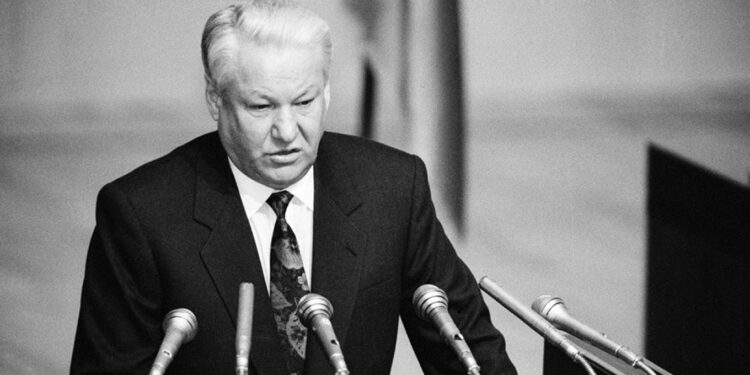Boris Yeltsin was a prominent Russian politician who played a pivotal role in the country’s transition from communism to democracy. Born on February 1, 1931, in Butka, Russia, Yeltsin’s political career spanned several decades and saw him rise to become the first president of the Russian Federation.
Yeltsin began his political journey in the Communist Party, where he quickly gained a reputation as a reformist. As the mayor of Moscow from 1985 to 1987, he implemented various reforms that aimed to liberalize the Soviet economy and introduce elements of democracy. His outspoken nature and willingness to challenge the Soviet establishment made him popular among the Russian people.
In 1991, Yeltsin became the president of the Russian Soviet Federative Socialist Republic, and later that year, he played a central role in the dissolution of the Soviet Union. Yeltsin’s commitment to democratic reforms led to the adoption of a new constitution and the establishment of a market-based economy. However, his presidency was also marked by significant economic and political challenges.
One of the most significant events during Yeltsin’s presidency was the constitutional crisis of 1993. Amidst growing tensions between the executive and legislative branches, Yeltsin dissolved the parliament, leading to a violent confrontation between his supporters and opponents. Yeltsin’s actions were highly controversial, but he ultimately prevailed, solidifying his authority and paving the way for further reforms.
Yeltsin’s economic policies, known as “shock therapy,” aimed to rapidly transition Russia from a centrally planned economy to a market-based system. However, the abrupt nature of these reforms, coupled with widespread corruption and mismanagement, resulted in a severe economic downturn. Many Russians faced significant hardships during this period, and Yeltsin’s popularity suffered as a result.
Despite his shortcomings, Yeltsin played a crucial role in Russia’s democratic development. He championed freedom of the press, allowed for multiparty elections, and promoted individual liberties. Yeltsin also made efforts to improve relations with the West, seeking closer ties with the United States and Europe.
Yeltsin’s presidency came to an end in 1999 when he resigned, appointing Vladimir Putin as his successor. His decision was influenced by health concerns and mounting criticism of his leadership. After leaving office, Yeltsin largely retreated from the public eye and passed away on April 23, 2007, at the age of 76.
Boris Yeltsin’s legacy remains a subject of debate. While he is celebrated by some as a champion of democracy and a key figure in Russia’s transition to a market economy, others criticize his economic policies and the chaotic nature of his presidency. Nevertheless, Yeltsin’s role in shaping post-Soviet Russia cannot be overlooked, and his impact on the country’s political landscape is undeniable.



Recent Comments